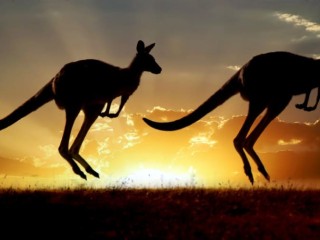 Russian authorities have given Australia's largest processor of kangaroo meat the green light to resume exports, ending a ban that has lasted almost three-and-a-half years.
Russian authorities have given Australia's largest processor of kangaroo meat the green light to resume exports, ending a ban that has lasted almost three-and-a-half years.
Russia was Australia’s largest and most important market for kangaroo meat exports until mid 2009 when it banned imports after finding high levels of bacterial contamination.
The closure has since pushed the kangaroo exporting, processing and harvesting industry into tough times. Kangaroo prices have dropped, many shooters have left the industry and those remaining have had to work longer hours at greater cost to make ends meet.
The lack of harvesting pressure coupled with recent good seasons has also led to a dramatic increase in kangaroo populations.
Official population statistics from the Federal Department of Environment show that populations increased nationally from 25 million head in 2010 to 34 million in 2011.
The explosion in numbers is seen as a ticking time-bomb by landholder groups concerned about the sudden increase in grazing pressure and the potential for expanding kangaroo populations to accelerate the decline into drought as seasons return to more normal rainfall patterns.
News that Russian authorities have given permission for Adelaide based Macro Meats to resume exports is a critically important step towards rebuilding the trade.
Russia's veterinary and quarantine authority Rosselkhoznadzor shows that approval for Macro Meats to recommence exports was granted on November 2.
A large number of red meat processing plants across a range of species in Australia have been inspected by Russian officials in recent weeks.
Six Australian companies exported kangaroo meat to Russia in August 2009 when most licenses were suspended, and there are hopes more will now also be granted new approvals to export following Macro's reinstatement.
AgForce kangaroo industry spokesman and Quilpie landholder Stephen Tully said the loss of the Russian market rocked the entire industry, with roo harvesting now down to about 20-30pc of pre-ban volumes.
He said concern about impacts on pastures from expanding kangaroo populations was prompting more landholders to erect kangaroo-exclusion fencing around their properties.
“Some of the numbers they are mustering out of these properties before they enclose them are amazing, they are taking upwards of 20,000 off in some cases.
“You don’t spent half a million dollars on your 50,000 acre property to exclude kangaroos unless it is a fairly major problem.
“Their theory is that it is cheaper to do that than it is buy next door and you’ve got the same results.”
Mr Tully said news that Russia has allowed an Australian plant to recommence exports was a great start.
“It is only a start, but it is going to be a big help,” he said.
“(The Russian market closure) decimated the industry, but it is a great opportunity to build it up from here.
“Now that it is there we have to make sure we build it in a really progressive way.”



HAVE YOUR SAY